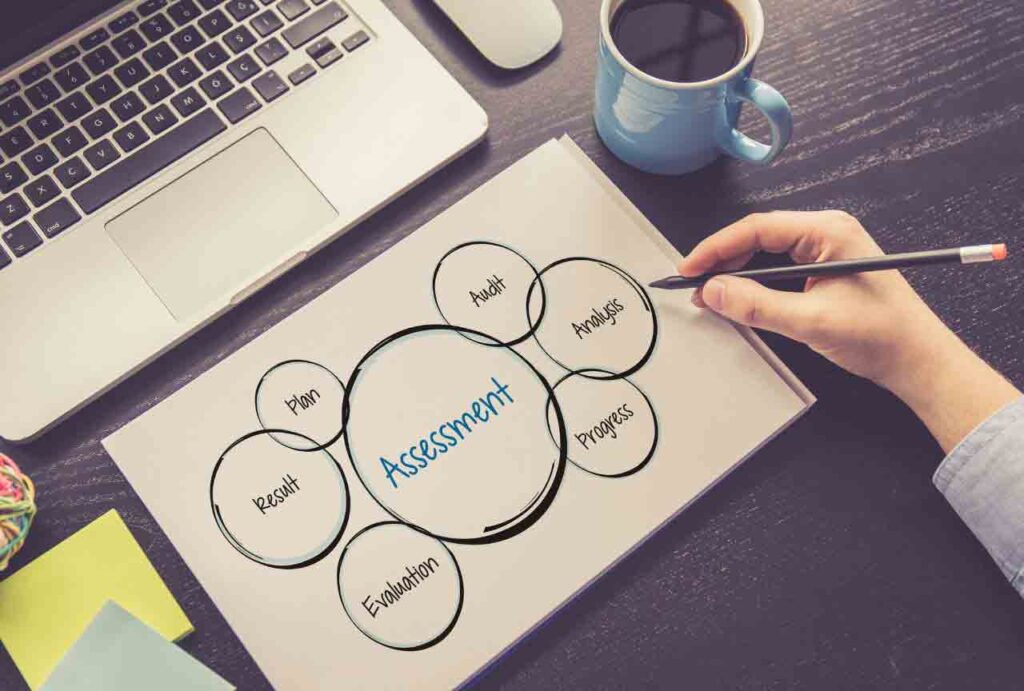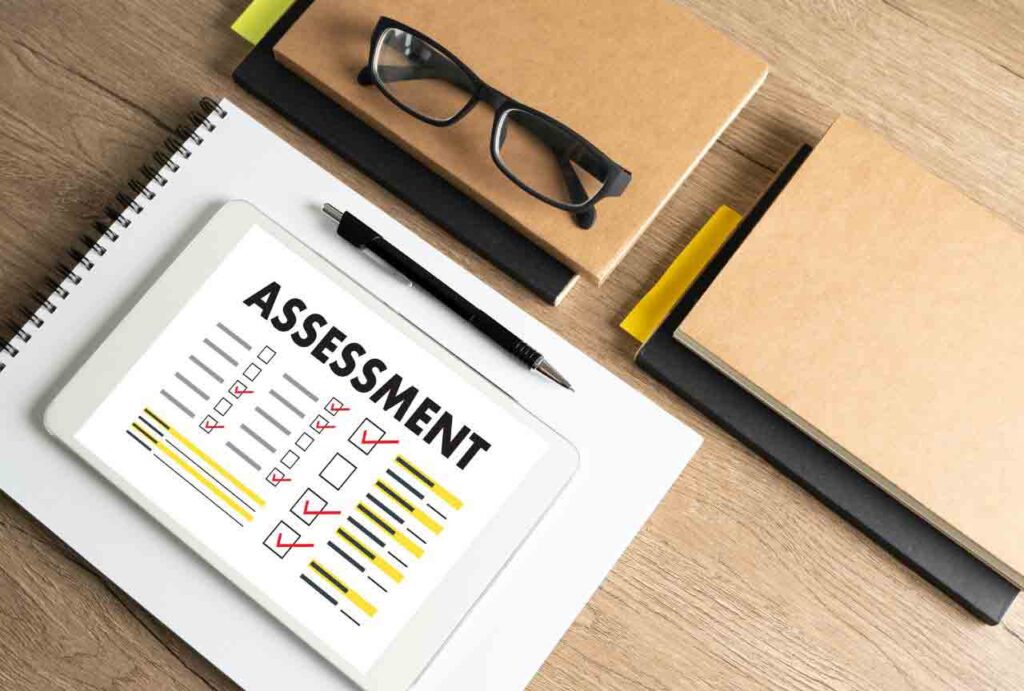Understanding where you stand in your career and determining your next steps can often feel like a complex challenge. This is where career assessments play a critical role. These tools are designed to provide insights into your skills, interests, values, and personality traits, helping you make informed decisions about your professional journey.
A career assessment is not just about choosing a job—it’s about gaining clarity and identifying paths that align with your goals and strengths. Whether you’re planning your first career move, considering a major transition, or aiming to grow in your current field, knowing when and how to utilize these tools can make all the difference.
In this article, we’ll explore the key moments when career assessments are most effective, the benefits they offer, how to evaluate and apply their results, and the best tools available to guide your decision-making process.
I. What Are Career Assessments?
A career assessment is a tool designed to help individuals understand their skills, interests, personality traits, and values in the context of their professional lives. These assessments aim to provide valuable insights that can guide career planning, decision-making, and development.
Career assessments are structured evaluations that typically involve answering questions or completing tasks related to various aspects of an individual’s professional profile. The results are then analyzed to suggest potential career paths, identify areas of strength, and highlight opportunities for growth.
There are several types of career assessments, each targeting specific dimensions of professional decision-making:
- Personality Assessments: These focus on understanding personality traits and how they relate to work preferences and environments.
- Skill and Aptitude Tests: These measure abilities in specific areas to identify strengths and skills applicable to different roles.
- Interest Inventories: These assess personal interests and align them with career fields or industries that might be a good fit.
- Values and Work-Style Evaluations: These explore an individual’s core values and preferred ways of working to suggest careers that match their principles and work style.
Career assessments are widely used by students, professionals, and career changers to clarify their options and create a roadmap for success.

Also Read: How Interests Shape And Lead Career Choices (examples)
II. Benefits of Career Assessments
Career assessments offer numerous advantages for individuals at different stages of their professional journey. These benefits extend beyond simply identifying a career path and include personal growth, confidence, and strategic planning.
1. Clarity in Career Goals
Career assessments help individuals gain a clear understanding of their aspirations and how they align with their skills and interests. This clarity simplifies decision-making and allows for more focused career exploration.
2. Identification of Strengths and Weaknesses
By analyzing skills, abilities, and preferences, career assessments highlight areas where an individual excels and areas that may require improvement. This knowledge is essential for personal development and skill-building.
3. Exploration of Career Options
For those uncertain about their career direction, these assessments provide a starting point by suggesting roles or industries that match their profiles. This exploration can open doors to opportunities that may not have been previously considered.
4. Improved Decision-Making
With the insights gained from career assessments, individuals can make more informed decisions about job offers, career changes, or educational opportunities. This reduces the likelihood of choosing a path that does not align with long-term goals.
5. Enhanced Job Satisfaction
By aligning career choices with interests and values, career assessments contribute to greater satisfaction in the workplace. They help individuals choose roles that resonate with their personal and professional priorities.
6. Confidence in Career Planning
Understanding one’s professional profile can boost confidence in making career-related decisions. Career assessments provide validation for choices and reduce uncertainty about the future.
7. Professional Development Opportunities
For those already in the workforce, career assessments can guide skill development and identify areas for further training or certification. This fosters career growth and adaptability in a changing job market.
8. Support for Career Transitions
Whether transitioning to a new role, industry, or career entirely, assessments provide valuable insights to navigate the change effectively. They can help individuals identify transferable skills and align their goals with new opportunities.
Career assessments are powerful tools for understanding professional potential and aligning personal strengths with career opportunities. By leveraging their benefits, individuals can take proactive steps toward fulfilling and successful careers.
III. When Are Career Assessments Most Effective?
A career assessment is most effective when used during key moments in a person’s professional or academic journey. These tools provide clarity and guidance when individuals face uncertainty, transitions, or decisions that require a deeper understanding of their strengths, interests, and goals. Recognizing the ideal times to use career assessments ensures they provide maximum value and actionable insights.
1. During Educational Transitions:
Career assessments are particularly valuable for students preparing to make significant academic or career decisions. For high school students selecting a college major or for college students entering the workforce, these assessments provide insights into potential career paths that align with their skills and interests.
2. When Considering a Career Change:
For professionals contemplating a change in industry or role, career assessments offer guidance on identifying transferable skills and exploring new opportunities. These tools help individuals understand how their existing abilities can apply to different fields and which options may be the best fit for their personal and professional aspirations.
3. Following Career Dissatisfaction or Burnout:
When individuals experience job dissatisfaction or burnout, a career assessment can be an essential tool for reevaluating their professional direction. By analyzing preferences and strengths, these assessments can highlight more fulfilling career options or adjustments within their current field.
4. At the Start of Career Planning:
For individuals beginning their career journey, career assessments lay the foundation for effective planning. They help clarify long-term goals, identify potential challenges, and establish a direction that aligns with personal values and strengths.
5. For Professional Growth and Development:
Career assessments are also valuable for those aiming to grow within their current roles. They can pinpoint areas for skill enhancement, leadership potential, and ways to increase job satisfaction through better alignment with personal values and career objectives.
6. After Significant Life Changes:
Major life changes, such as relocation, returning to work after a break, or adapting to new personal circumstances, can prompt a reassessment of career goals. Career assessments provide insights into how to navigate these changes effectively and identify opportunities that match new priorities.
7. When Planning for Future Goals:
For those who are proactive about their long-term career objectives, career assessments serve as a strategic tool. They assist in setting realistic goals, identifying areas for improvement, and creating a roadmap to achieve professional milestones.
8. During Economic or Industry Changes:
In times of economic uncertainty or shifts within industries, career assessments help individuals adapt by exploring alternative career paths or roles that match their skills. This ensures better alignment with market demands and future opportunities.
By using a career assessment at these pivotal moments, individuals can gain clarity, make informed decisions, and take meaningful steps toward achieving their professional goals. Recognizing when these tools are most effective ensures they provide maximum benefit for career planning and development.

Also Read: Career Quiz: Is Career Change Right For You?
IV. How to Evaluate and Use Career Assessments
A career assessment is a powerful tool for gaining insights into professional potential, but its effectiveness depends on how well the results are understood, evaluated, and applied. To maximize the value of a career assessment, it’s essential to approach the process strategically and with a clear focus on actionable outcomes.
1. Choose the Right Assessment Tool:
The first step in evaluating and using a career assessment is selecting one that aligns with your needs and objectives. With various types of assessments available, such as personality tests, skills evaluations, and interest inventories, it’s important to match the tool with your specific career questions. For instance:
- Use a personality assessment to identify work environments and roles that align with your traits.
- Opt for a skills or aptitude test to evaluate your strengths in technical or creative areas.
- Select an interest inventory to explore careers that align with your passions and hobbies.
2. Understand the Methodology:
A career assessment’s reliability depends on its design and methodology. Look for assessments developed by reputable organizations or validated through research. Understanding how the test measures attributes, such as personality traits or skills, ensures you interpret results accurately and avoid biases.
3. Analyze the Results Thoughtfully:
Once you’ve completed an assessment, take time to review the results in detail. Many career assessments provide scores, profiles, or tailored recommendations. Pay attention to the following:
- Key Themes: Look for patterns or recurring suggestions that highlight strengths or preferences.
- Alignment with Goals: Consider how the results align with your current or future career objectives.
- Potential Challenges: Identify areas for improvement or additional skill development.
4. Seek Guidance if Needed
For a deeper understanding of the results, consider consulting with a career coach or counselor. Professionals can help interpret the findings and provide insights tailored to your situation. This can be particularly helpful when making significant decisions such as changing careers or pursuing advanced education.
5. Create an Action Plan:
The true value of a career assessment lies in turning insights into actionable steps. Use the information to:
- Identify potential career paths and industries of interest.
- Create a personal development plan to address skill gaps or enhance strengths.
- Set realistic and achievable short-term and long-term career goals.
6. Combine with Other Information:
While career assessments provide valuable data, they should not be the sole basis for decisions. Combine assessment results with other factors such as:
- Market trends and demand for specific roles.
- Personal experiences and intuition about career preferences.
- Advice from mentors, peers, or industry experts.
7. Revisit Assessments as Needed:
Career assessments are not a one-time solution. As career goals and circumstances evolve, reassessing your skills and interests can provide updated insights. Periodic evaluations ensure your career planning remains aligned with your current aspirations and market opportunities.
V. The Best Tools and Resources for Career Assessments:
Choosing the right tools and resources for a career assessment is critical for gaining meaningful insights into your skills, interests, and career potential. Today, numerous platforms and methodologies make career assessments more accessible and effective. Below is a detailed guide to some of the most popular tools and how they can help individuals make informed decisions about their careers.
1. Online Career Assessment Platforms
Myers-Briggs Type Indicator (MBTI):
One of the most widely recognized tools, the MBTI assesses personality types to suggest work environments and career paths that suit an individual’s traits. It’s ideal for those looking to understand their working style and compatibility with team dynamics.
Strong Interest Inventory:
This tool measures personal interests to match users with careers that align with their passions. It’s particularly effective for those uncertain about their preferences or looking to explore new industries.
CareerOneStop:
Sponsored by the U.S. Department of Labor, this platform offers free assessments focusing on skills, interests, and work values. It also provides detailed occupational data, including salaries and job outlooks.
Gallup CliftonStrengths:
CliftonStrengths helps individuals identify their top talents and provides personalized guidance on applying these strengths in their careers. It’s a great option for those seeking personal development in their current roles or exploring leadership opportunities.
O*NET Interest Profiler:
A free tool from the U.S. Department of Labor, this profiler aligns your interests with potential career paths and provides detailed job descriptions, salary information, and necessary qualifications.
2. Professional Career Counseling Services
Career counselors often use specialized tools and resources to provide a comprehensive analysis of an individual’s strengths and career options. Some common services include:
- Educational Institutions: Many schools and universities offer career assessment programs for students and alumni, often at no cost.
- Private Career Coaches: These professionals provide tailored guidance and access to premium tools like MBTI or the Strong Interest Inventory.
3. Mobile Applications for Career Assessments
Mobile apps make career assessments more accessible and convenient. Some popular options include:
- PathSource: Focused on career exploration, PathSource offers personalized recommendations and real-world insights about different professions.
- Good&Co: Designed to measure workplace compatibility, this app provides assessments that help individuals understand their work personality and team fit.
- Indeed Career Guide: Beyond job postings, Indeed offers career resources, including assessment tools to identify suitable job roles based on user profiles.
4. Self-Guided Career Assessment Tools
For those who prefer a DIY approach, self-guided tools provide valuable insights without requiring professional intervention:
- Books on Career Assessment: Books like What Color Is Your Parachute? by Richard N. Bolles provide exercises and frameworks to self-assess skills and interests.
- Work Values Surveys: Free downloadable surveys that help individuals understand what they value most in a job, such as autonomy, security, or creativity.
5. AI-Based Career Assessment Tools
Modern tools powered by artificial intelligence (AI) provide deeper insights through advanced data analytics:
- Pymetrics: Uses AI and neuroscience-based games to identify strengths and suggest matching career paths.
- Traitify: Offers a fast, image-based assessment powered by AI to deliver career recommendations in minutes.
6. Free Career Assessment Resources
For budget-conscious individuals, many free tools provide credible results, such as:
- 16Personalities: A simplified personality test based on MBTI, offering career suggestions tailored to your personality type.
- CareerExplorer by Sokanu: Offers a free version of its in-depth assessment, matching individuals to careers based on interests and aptitudes.
7. How to Use Career Assessment Tools Effectively
- Be Honest: Answer questions authentically to ensure accurate results.
- Analyze Results Thoroughly: Look beyond surface-level recommendations to understand underlying patterns.
- Follow Up with Action: Use the insights to craft a career development plan or seek professional advice.
By leveraging the right tools and resources, you can make more confident and informed career decisions. These assessments serve as a foundation for building a fulfilling professional path tailored to one’s unique strengths and aspirations.



